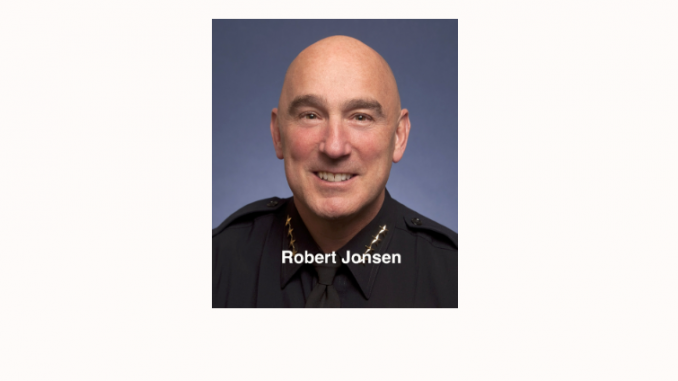
BY ALLISON LEVITSKY
Daily Post Staff Writer
In a longstanding struggle to hire qualified recruits, Palo Alto police are still down 12 officers — but Chief Bob Jonsen has a plan to bring young blood onto the force.
The department began offering $25,000 bonuses for new hires in September, to no avail: the department is still short more than 10% of the 92 officers it is budgeted for.
“It’s definitely an issue for agencies throughout the region,” Jonsen told the Post. The same was true in Menlo Park, where Jonsen served as chief before being hired in Palo Alto late last year.
The department already offers citizens’ police academies for residents who want to learn more about the police. Jonsen plans to start one just for teenagers this year. A similar program in Menlo Park proved successful, Jonsen said. “Not only did it draw in, obviously, the younger generation, but it piqued their interest in how we did our job,” Jonsen said. “Many times we found that once they graduated from that academy, they wanted to stay connected, so they would sign up to become explorers.”
Much of Jonsen’s law enforcement background is in teaching at a police academy, he added.
Young explorers
Since 1969, the Menlo Park police have sponsored an “explorer unit” of young people aged 14 to 21 who are interested in law enforcement.
The unit is organized through the Pacific Skyline Council of Boy Scouts of America.
In Menlo Park’s program, explorers attend a regional Explorer Academy to learn basic police work. They are trained in first aid, CPR, crime prevention, evidence searches, criminal law and police science.
The explorers also go on camping trips, to regional competitions and to national and regional law enforcement explorer conferences.
“Once they got into the explorer program, they’d do that for a couple years, and then they realized that they really liked this profession,” Jonsen said. “And then we’d move them into entry-level positions. And then from there, we’d move them into the academy.”
A big plus of recruiting through the explorer program is that it draws in locals who are already rooted in and knowledgeable about the community, rather than recruiting from all over the state or country, Jonsen said.
Palo Alto already has an explorer program, but Jonsen said he wants to “energize it a little bit.”
Another hiring challenge
Lateral recruiting of officers from other agencies has proved to be increasingly challenging because cities have different pension plans.
“Laterals look at that kind of stuff,” Jonsen said. “That makes it challenging to get qualified laterals.”
The California Public Employees’ Pension Reform Act, which took effect in 2013, may ease the challenge of recruiting officers from other agencies by maintaining uniform benefits across agencies.
The department had between eight and 12 vacancies for most of 2017. The city funds allocated in September would be used to pay a $10,000 bonus to new academy graduates and a $25,000 bonus to cops who had worked at other agencies.
Recruits are provided health benefits and paid a cadet’s salary while in training for 10 months before hitting the streets.
Starting salaries in the department range from $100,942 to $119,953. Officers receive up to $2,088 a month for medical insurance, retiree medical benefits and fully paid dental and vision plans.
It’s not uncommon for the department to lose a recruit during the six-month police academy or four-month internal training program, according to Lt. James Reifschneider.
Requirements
Most Palo Alto police officers have a bachelor’s degree, military service, or both. Several have master’s degrees and two have law degrees.
Tattoos and misdemeanor convictions don’t disqualify recruits. Officers can even admit to drug use if it took place at least three years prior.
Recruits also don’t have to meet a height or weight requirement, but they must score high on physical agility tests along with reading and writing exams.



